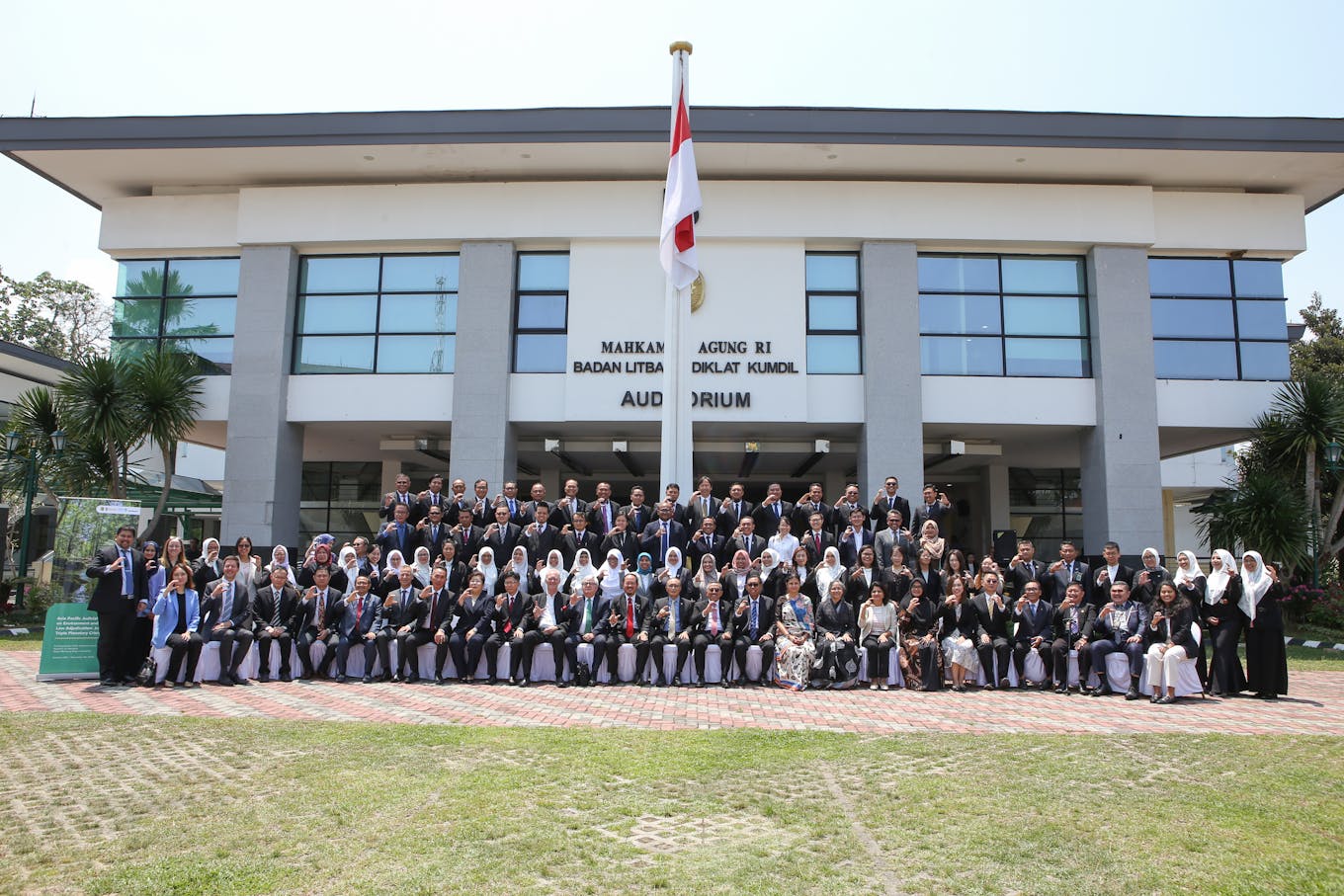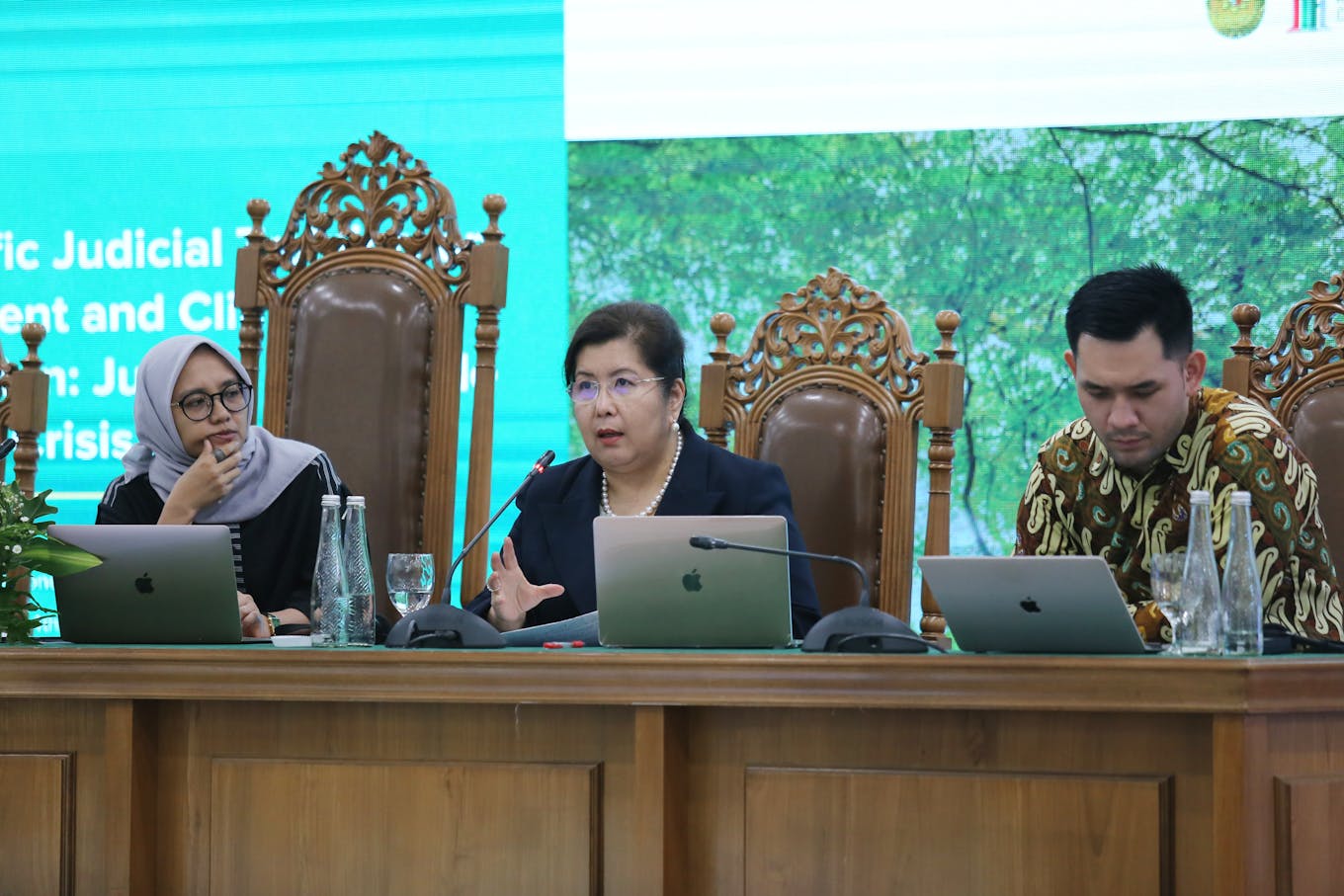In India, the Ganges river, which holds deep spiritual significance for its people, is regarded by the courts as a living entity, in a move to guard it from pollution.
In China, the concept of “ecological civilisation” that more closely connects the protection of the environment with its ethical underpinnings is written into the country’s constitution. A growing awareness of biodiversity conservation has produced new developments on the legislative and judicial fronts.
It is these trends and reforms that have prompted legal scholars and senior judges to increasingly contemplate if Asia’s judiciary is more well-placed to rule in favour of nature than its global counterparts, and hence to play a larger role in driving change in the climate movement to prioritise environmental protection.
“When you hear a judge from Indonesia, India or China speak, you soon realise that they are not just representing people. They more often represent nature,” said Michael Wilson, former Supreme Court justice of Hawaii and a strong environmental justice advocate.”Elsewhere, there is just much more focus on the wellbeing of humans.”
Wilson, who helped found the legal capacity-building platform Global Judicial Institute on the Environment, was speaking to a group of about 70 judges from Asia at a judicial training programme held in Indonesia last November. In response to questions from participating judges on whether considering environmental justice in the context of giving rights to rivers, forests and mountains is a relevant discourse for Asia, Wilson said it will be a “wonderful” cause for Asia’s judges to pioneer or consider. “It is modern, and it is an emerging and powerful concept,” he said.
Highlighting his experience interacting with judges from different jurisdictions, Wilson observed that Asia’s judges seem to be more culturally disposed to prioritise nature in their decisions. “This idea of protecting resources not just for survival or wealth but for a higher value – you could call it faith or an expression of the human spirit – seems to me to be an extraordinarily important way to focus on hope for the future. It is very hard to describe unless you intuitively recognise the beauty and the power of nature.”
The five-day course, organised by ClientEarth in partnership with the Indonesian Centre for Environmental Law and the Judicial Training Centre of the Supreme Court of Indonesia, and with support from the United Nations Environment Programme (UNEP), aimed to help strengthen and sharpen judges’ skills and knowledge in climate and nature-related litigation. The environmental law charity, which is headquartered in London, has been organising similar judicial trainings in China.

More than 70 judges from across Asia participated in a five-day judicial training programme organised by ClientEarth. The sessions focused on global legal developments on environmental and climate matters. Image: ClientEarth
The ‘rights of nature’ movement
Globally, a new wave of movements that look at giving legal rights to nonhuman animals and species is gaining traction. The UN has said it is looking into the legal implications of the rights of nature, mentioned in the last meeting of the Convention on Biological Diversity.
Judges and key speakers, including legal scholars and senior justices who have written key decisions on the environment, that Eco-Business spoke to at the ClientEarth’s Asia Pacific judicial training session also showed keen interest in the courts’ role to ensure natural ecosystem protection.
Expanding on the idea of the “rights of nature” concept which has roots in a 1972 legal review paper but only started to influence lawmaking after decades, Justice Antonio Herman Benjamin, member of the national High Court of Brazil, told participating judges that treating climate change as related to nature and biodiversity ensures that the planetary crisis is not addressed “in silos” in law. In recent years, countries in Asia are starting to look at instituting specific biodiversity legislation, while there are others that try to tackle a narrower problem such as pollution, he added.

Justice Antonio Herman Benjamin (right), member of the national High Court of Brazil, supported China’s expression of “ecological civilisation” and said that the term can help add an additional ethical layer of meaning to nature conservation. Image: ClientEarth
Benjamin, who is also the former chair of the World Commission on Environmental Law (WCEL) at International Union for Conservation of Nature, the global authority on the status of the natural world, is also less critical of Chinese president Xi Jinping’s ‘ecological civilisation’ vision for a greener future, a term that some have criticised for being just a slogan.
“In fact, the concept is more poetic than the environmental rule of law,” he said, adding that the political momentum created by the pitch has helped to build an enterprising spirit for China to move forward on public interest litigation and civil adjudication. “It bridges and connects the protection of the environment with the idea that this is what being civilised means. This is extraordinary because beyond legal reason, it brings with it strong ethical underpinnings.”
In recent years, although China has not seen landmark cases on biodiversity, local-level courts have been active in meting out a large number of ordinary judgments for lawsuits filed against polluters, wildlife poachers and others who run afoul of the law. Across Asia, judicial activism is rare but judiciaries have largely signalled their willingness to engage on environmental issues and climate change.
On the remedies that courts can mete out, Benjamin advises judges to put a strong focus on straightforward natural restoration, especially of ecosystems with native species. “Scientists don’t feel very comfortable when I say this. But do not come to us judges with very sophisticated systems of damage assessment.”
“Because someone in the middle of the Amazon or the Congo Basin, or in Kalimantan or Sabah, does not have access to experts that can conduct and use these sophisticated techniques,” he explained. “Restoration, on the other hand, is what can be done easily. Those responsible could be required to act on restoration and bring evidence to the courts or the prosecutorate periodically to show that there is compliance.”
Financial remedies are a plus, said Benjamin, which should be recommended if the party responsible, for example, is not entirely able to restore a destroyed forest or in the case of the Amazon, finds that it can take up to at least a 100 years to do so.
When in doubt, nature
Across the world, climate-related legal cases have risen quickly – more than doubling since 2017 – with climate-vulnerable nations in the Global South accounting for a small but growing proportion of the total number of climate lawsuits, according to data from the Sabin Centre for Climate Change Law at Columbia University.
From air pollution to mining encroachment, experts tell Eco-Business that courts and judges in Asia will find that they need more guidance on nature-related topics. Asia is home to both tropical and temperate forests, and some of the most unique river basins worldwide, but its natural ecosystems have seen a rapid decline in biodiversity.
Benjamin, as well as Andreas Aditya Salim, senior advisor and co-founder of the Indonesia Ocean Justice Initiative (IOJI), both advocates for judges to uphold superior principles such as the “in dubio pro natura” maxim which requires them to rule in favour of protecting the environment even when in doubt as to whether an activity is harmful. This shifts the burden of proof to those who are accused of negligence or for causing the damage, said Salim.
“I hope that such superior principles can be internalised within the minds and souls of the judges, so that nature is always prioritised in decision-making,” he said, calling for Asia’s judiciary to “manifest their progressiveness” in exercising their powers.
“What the court can do is close the existing gap that is a result of elected officials failing to protect the environment and minority interests,” he said, adding that judges should also note that when they render dissenting opinions, there is potential for creating breakthroughs in favour of the environment. “We have observed significant developments (in nature litigation) in international law, but in Asia, faced with ecological destruction, there is still a strong role that the judiciary can play.”
High court judges from Malaysia, the Philippines, and China also presented updates and insights, drawing from developments in nature-related litigation from their own jurisdictions.
Justice Tian Xinze, from the environment and resources division of the Supreme People’s Court of the People Republic of China, shared about China’s judicial practice in biodiversity conservation after hosting Kunming’s COP15, the world’s biggest biodiversity conference in a decade. As China’s customs embark on a crackdown on invasive plants and animals to safeguard its natural ecosystems, Tian said more cross-border collaboration is needed. China’s Biosecurity Law, which targets alien species, came into force in 2021.

Justice Dato’ Faizah binti Jamaludin from the high court of Malaysia (centre) speaking at the training session. Image: ClientEarth.
Justice Dato’ Faizah binti Jamaludin from the High Court of Malaysia shared that more than 90 per cent of the cases that come before the environment courts across the country have been settled as companies and individuals found liable under the Environmental Quality Act need to bear the burden of proof that they have demonstrated due diligence to resolve their guilt from potential lawsuits.
At the Rio Earth Summit in 1992, Malaysia pledged to maintain at least 50 per cent of its land mass under forest and tree cover. Faizah said the pledge has been made good but state governments need to be incentivised further to ensure that forests are kept intact and more natural cover added.
The Malaysian government has said that it is in the early stages of developing a national climate change bill that will take about two to three years to finalise. “Before that, there must be some sort of financial and legal penalties for the companies who choose profits over climate and nature,” said Faizah. “It may come from legislation, or it may come from the courts.”
Eco-Business’ participation in the Asia Pacific Judicial Training Programme and accommodation at the training centre was sponsored by ClientEarth.

















